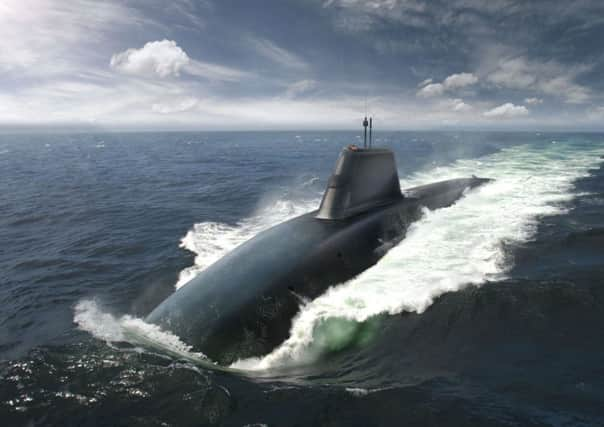Jackson Cullinane: Give defence workers a say


The possession of nuclear weapons, threatening death and destruction to millions, is widely accepted as immoral and the assertion that they constitute deterrence is highly questionable.
Describing Britain’s nuclear weapons as “independent” is also questionable given that Trident is leased from the United States, guided by US satellites, overhauled at Kings Bay in Georgia and linked to Nato/US objectives.
Advertisement
Hide AdAdvertisement
Hide AdDeveloping nuclear weapons systems also contradicts international treaties on proliferation. And, at a time of “austerity” involving service cuts, job losses, wage reductions and cuts to terms and conditions, proposals to spend up to £100 billion on a weapon of mass destruction makes no economic sense.
However, trade union opposition to nuclear weapons has seldom been unanimous. There has also been a marked reduction in trade union presence on anti-nuclear weapons protests, in contrast to the mobilisation of trade unionists against Polaris, Cruise and Pershing when the activities of CND were at their peak.
Whilst the “jobs and services” argument has secured the “paper policy” reaffirmation of trade union opposition to Trident, concerns over job losses may also explain the reluctance of trade unionists to prioritise involvement in protests against it.
Studies, such as those by the STUC and Scottish CND, have exposed the exaggerated level of job losses among defence workers should Trident be removed. However, whilst suggestions that Trident expenditure should simply be transferred to public services may be good for public services generally, this would be small comfort for defence workers if they experienced the loss, however temporary, of skilled and relatively well-paid employment. Also, references by some in the peace movement to the loss of “only” 1,700 jobs at Faslane is unlikely to inspire those workers to promote an anti-nuclear weapons position, even if this is the official policy of their own union.
What then is required to secure the continued support of trade unions for anti-nuclear weapons policies? The starting point is to take defence workers’ concerns seriously and to recognise that defence jobs have been haemorrhaging over many years. Over the lifetime of the existing Trident programme, 40,000 or 35 per cent of defence jobs have been lost, indicating that Trident has not “saved” jobs and in fact may be costing jobs across the defence sector.
In recent weeks and months, shipbuilding workers have been seeking assurances over future orders and the Scottish Government has pledged, if re-elected after a Yes vote in the referendum, to construct four frigates on the Clyde. Some trade union representatives, however, suggest that this promise is a hollow one, claiming that two of these frigates will be completed under existing contracts and that a minimum of 13 frigates are required to secure the yards’ future.
Some have also voiced concerns over the possibility of losing UK defence contracts in the event that Scotland votes for independence. Whilst this suggestion is refuted by the Scottish Government, what should be accepted is that the concerns over future job security are real and understandable. Whatever the outcome of the referendum vote, action is required to diversify work and to secure the employment of workers currently engaged in defence-related work, whether conventional or nuclear.
There is, therefore, a pressing case for the creation of a Scottish Defence Diversification Agency. Such an agency would need to be properly staffed and resourced and would have to engage with trade union representatives in order to develop and implement plans that are realistic and which have the confidence of the workforce. Too often in the past, such plans have failed through a lack of commitment to invest, or a limitation in ideas and genuine employee involvement.
Advertisement
Hide AdAdvertisement
Hide AdRaising these issues and taking on board the concerns of defence workers are in the interest of the peace and anti-nuclear weapons movement. Doing so could ensure the continuation of supportive union policies and also the active involvement of trade unions in future moves for peace and nuclear disarmament.
Jackson Cullinane is political officer of Unite Scotland, but writes here in a personal capacity. A fuller version of this article can be found at the Scottish Global Forum website: scottishglobalforum.net